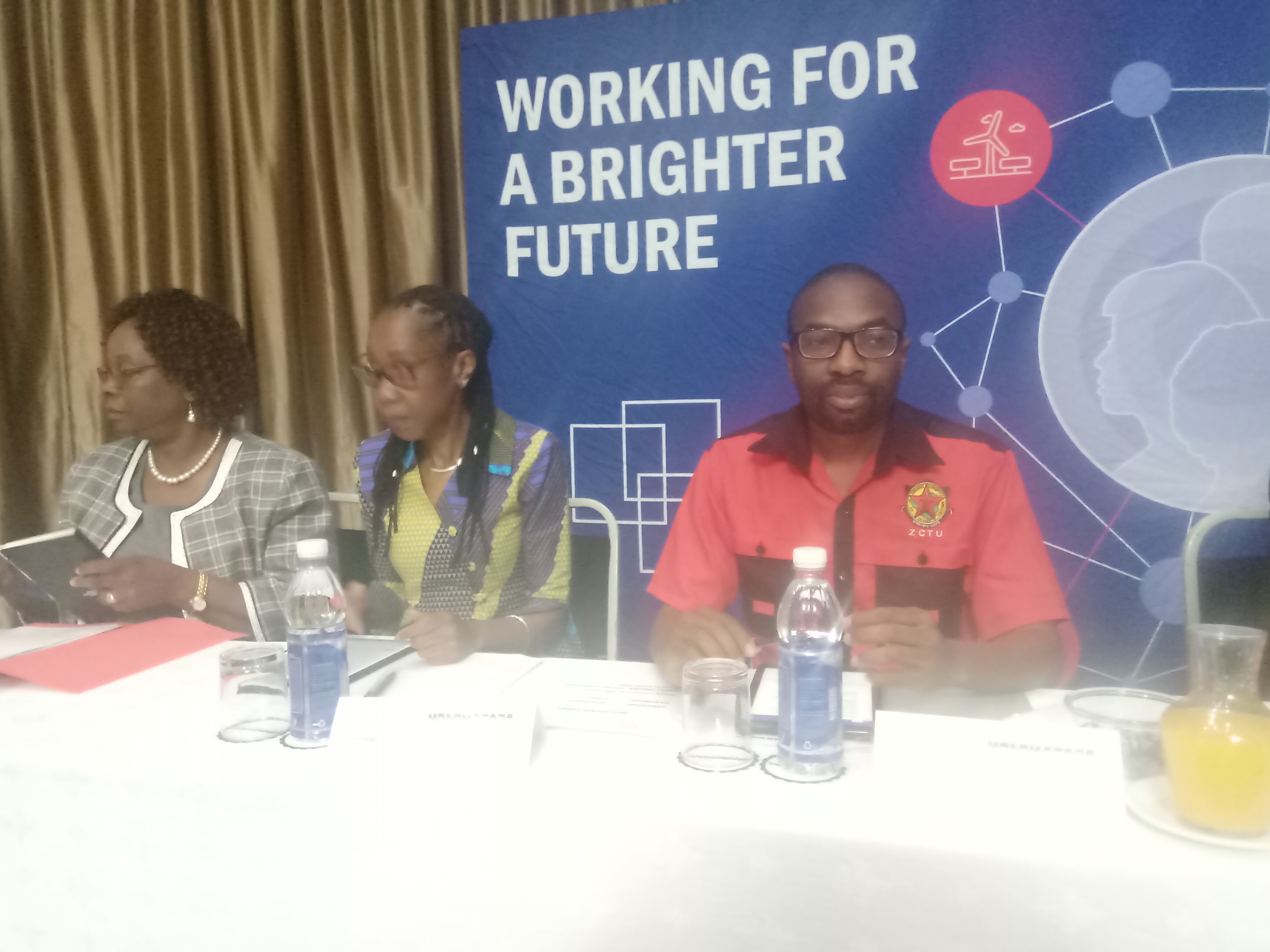By Byron Mutingwende
Stakeholders in the world of work in Zimbabwe convened at a meeting to find solutions for the future of work at a time they are fixated on searching for evasive solutions to the daunting socio-economic problems they face today.
This emerged at the Zimbabwe Labour Symposium on the Future of Work that was organised by the International Labour Organisation (ILO) in partnership with the Friedrich Ebert Stiftung (FES) and the Zimbabwe Congress of Trade Unions (ZCTU) running in Harare from 21-22 October 2019.
The meeting comes at a time when workers are experiencing one of the most difficult periods of post-colonial state labour relations.
“We meet while workers are basically enslaved and working for nothing. Trade union leaders and activists are threatened, brutalised, imprisoned and facing all sorts of harassment. Ironically, we join the rest of the global labour market in looking for solutions for the future of work at a time we are fixated on searching for evasive solutions to the daunting socio-economic problems we face today,” said Peter Mutasa, the ZCTU President in his remarks at the symposium.
The Forum brought together a cross section of trade union leaders cutting across the private-public sector divide as well as formal and informal economy stratification.
Mutasa said it was important that trade union leaders came together to seek solutions for a future that is highly uncertain in terms of its impact on politics, economics, society and work but a future that is surely coming.
He said the World has witnessed at least three heralded industrial revolutions in the past, which transformed every facet of life. The first industrial revolution based on steam engine, coal and trains came around 1760 and revolutionarised the production relations in a big way. This brought upon a transition from feudal productive relations to manufacturing processes, division of labour and increased productivity as well as demand for labour.
The second industrial revolution came early 20th century with electricity, oil and combustion engines. There was rapid mass production. Electronics, computers and automation of production, nuclear, natural gas energy, cars and planes once again changed the production relations around 1960 in what is known as the third revolution. All these dispensations left profound changes in all facets of political, economic and social relations in the World. We are impacted both positively and negatively by these industrial revolutions in different ways around the world.
Speaking at the same occasion, Hopolang Phororo, the Director for the ILO Country Office for Zimbabwe and Namibia said the the labour conference was meant to provide a platform to chart the way for the next 100 years of the world of work in Zimbabwe.
She reiterated that despite the challenges facing workers today, workers in Zimbabwe have to add their voices to the on-going global reflection on the changing world of work.
“The new world of work will create new challenges, as well as opportunities for government, employers, workers and other stakeholders. This meeting is also significant, as it has drawn participation from a diverse range of worker representative organisations, a demonstration of workers unity, which is a very significant milestone,” Ms Phororo said.
The labour expert highlighted that the future of work presents countless opportunities to reverse long-term and current decent work deficit.
She, however, pointed out that it also presents serious challenges that could increase inequalities and vulnerabilities, if not well managed.
“As was the case in 1919, when the ILO was formed, we are at a point in time where decisive action is needed from all stakeholders. We have an opportunity to chart a new path for a human centred agenda that ensures that more people benefit from the progress made in our economies and society, at large.”
The world of work is undergoing major changes, in particular driven by: technological innovation and changing patterns of production, increasing integration in the global economy, climate change and millions of people entering the labour market every year.
“The uncertainty is even greater closer to home, as we have to deal with the much deeper structural issues that have seen high levels of informality, working poverty and precarious working conditions. It is important that we proactively reflect on how the fourth industrial revolution can be an opportunity to catch up with the rest of the world or if we do not, we risk being left behind.”
Mr. Japhet Moyo, the Secretary General of the ZCTU said the symposium was also meant to question the state of preparedness to engage with the future and the changes that are coming.
“We cannot afford to ignore the changes and we need new strategies and skills as well as tactics to organise as the situation becomes more complex and complicated.
Mr. Moyo highlighted that the symposium should result in extensive change of information from all facets. He said trade unions would be able to identify institutional approaches and mitigatory strategies to counter the harsh effects of globalisation and strengthen capacities to engage and sustain policy dialogue.
“In particular, both the national and sub level structures need to be empowered through the presentations on strategies for continued engagement at both sectoral and local levels.
“We also anticipate to come up with recommendations for a framework or strategies for future engagement on our state of preparedness to deal with the changes the 4th industrial revolution brings,” Mr. Moyo added.






